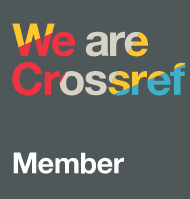Exploring the landscape of pre-service teacher leadership: A systematic literature review
Abstract
Keywords
Full Text:
PDFReferences
Acquaro, D. (2019). Preparing the Next Generation of Educational Leaders: Initiating a Leadership Discourse in Initial Teacher Education. International Studies in Educational Administration, 47(2), 107–121.
Adewale, S., & Potokri, O. C. (2023). Integrating African Women Academics in Leadership: A Systematic Review. Journal of Higher Education Policy and Leadership Studies, 4(3), 53–73. https://doi.org/10.61186/johepal.4.3.53
Aitken, A. (2008). The Novice With Expertise: Is There a Leadership Role for Preservice Teachers in Times of Educational Change? Learning Landscapes. https://doi.org/10.36510/learnland.v1i2.259
Álamo, M., & Falla, D. (2023). Transformational Leadership And Its Relationship With Socio-Emotional And Moral Competencies In Pre-Service Teachers. Psychology, Society and Education, 15(1), 48–56. https://doi.org/10.21071/pse.v15i1.15552
Alamri, H. A., & Alfayez, A. A. (2023). Preservice Teachers’ Experiences Of Observing Their Teaching Competencies Via Self-Recorded Videos In A Personalized Learning Environment. Humanities and Social Sciences Communications, 10(1). https://doi.org/10.1057/s41599-023-02260-2
Alghamdi, A. K. H., El-Hassan, W. S., & Alattiq, M. (2022). Preparing Saudi Women Educators for Teacher Leader Roles in Accord with Societal Expectations of Islamic Leadership. Issues in Educational Research, 32(1). https://www.scopus.com/inward/record.uri?eid=2-s2.0-85126826802&partnerID=40&md5=a3dfc0ed70508e010b55a5d09e9dda2e
Arifin, I., Juharyanto, Mustiningsih, & Taufiq, A. (2018). Islamic Crash Course as a Leadership Strategy of School Principals in Strengthening School Organizational Culture. SAGE OPEN, 8(3). https://doi.org/10.1177/2158244018799849
Asghar, M. Z., Barbera, E., Rasool, S. F., Seitamaa-Hakkarainen, P., & Mohelská, H. (2023). Adoption Of Social Media-Based Knowledge-Sharing Behaviour And Authentic Leadership Development: Evidence From The Educational Sector Of Pakistan During COVID-19. Journal of Knowledge Management, 27(1), 59–83. https://doi.org/10.1108/JKM-11-2021-0892
Ayesha Hashim. (2020). Coaching and Districtwide Improvement: Exploring the Systemic Leadership Practices of Instructional Coaches. Teachers College Record, 122(10). https://www.scopus.com/inward/record.uri?eid=2-s2.0-85105908759&partnerID=40&md5=768af82000952ae46e0985817eaac6ab
Bond, N. (2011). Preparing Preservice Teachers to Become Teacher Leaders. Educational Forum, 75(4), 280–297. https://doi.org/10.1080/00131725.2011.602578
Brazill, S., & Ruff, B. (2022). Using Transformational Leadership to Create Brave Space in Teaching Multicultural Education. International Journal of Multicultural Education, 24(2), 114–131. https://doi.org/10.18251/ijme.v24i2.2847
Buleshkaj, O., & Koren, A. (2022). Educational Leadership For the National Curriculum Implementation: The Case of Kosovo. International Journal of Management in Education, 16(3), 259–275. https://doi.org/10.1504/IJMIE.2022.122628
Chaaban, Y., & Sawalhi, R. (2020). Student Teachers’ Development as Teacher Leaders During the Practicum Experience. Journal of Applied Research in Higher Education, 12(5), 927–942. https://doi.org/10.1108/JARHE-04-2019-0093
Chow, J. M.-L., & Lam, S.-F. (2015). Nurturing Leadership and Changing Student Mindset Through Meaningful Community Service: The HKU Service Leadership Internship. In Quality of Life in Asia (Vol. 6, pp. 67–81). Springer. https://doi.org/10.1007/978-981-287-515-0_5
Davis, S. C. (2023). Engaging Faculty In Data Use For Program Improvement In Teacher Education: How Leaders Bridge Individual And Collective Development. Teaching and Teacher Education, 129, 104147. https://doi.org/10.1016/j.tate.2023.104147
Demir-Yıldız, C. (2023). Unveiling Job Satisfaction of Teachers through a Blend of Methodologies. Sustainability (Switzerland), 15(18). https://doi.org/10.3390/su151813986
Durnali, M. (2022). ‘Destroying Barriers To Critical Thinking’ To Surge The Effect Of Self-Leadership Skills On Electronic Learning Styles. Thinking Skills and Creativity, 46. https://doi.org/10.1016/j.tsc.2022.101130
Egan, C. A., Merica, C. B., Karp, G. G., Orendorff, K., & McKown, H. B. (2023). Physical Activity Leadership Development Through a Physical Education Teacher Education Service-Learning Course. Journal of Teaching in Physical Education, 42(1), 86–96. https://doi.org/10.1123/jtpe.2021-0212
Flemming, K., Booth, A., Garside, R., Tunçalp, Ö., & Noyes, J. (2019). Development: Clarification Of The Purpose, Designs And Relevant Methods. BMJ Global Health, 4(1), 1–9.
Gusenbauer, M., & Haddaway, N. R. (2021). What Every Researcher Should Know About Searching – Clarified Concepts, Search Advice, And An Agenda To Improve Finding In Academia. Research Synthesis Methods, 12(2), 136–147. https://doi.org/10.1002/jrsm.1457
Harms, B. M., & Knobloch, N. A. (2005). Preservice Teachers’ Motivation and Leadership Behaviors Related to Career Choice. Career and Technical Education Research. https://doi.org/10.5328/cter30.2.101
Hayrol Azril Mohamed Shaffril, Nobaya Ahmad, Samsul Farid Samsuddin, Asnarulkhadi Abu Samah, & Mas Ernawati Hamdan. (2020). Systematic Literature Review On Adaptation Towards Climate Change Impacts Among Indigenous People In The Asia Pacific Regions. Journal of Cleaner Production, 258, 120595. https://doi.org/10.1016/j.jclepro.2020.120595
Hoon, T. S., Muthukrishnan, P., Choo, K. A., Kam, N. K. B. M. Z., & Singh, P. (2022). Preservice Teachers’ Motivation and Adoption of 21st-Century Skills. CALL-EJ, 23(4), 205–218. https://www.scopus.com/inward/record.uri?eid=2-s2.0-85138553166&partnerID=40&md5=64df81eb5246806565beb0de244cb5b0
Howard, D. M., Adams, M. J., Clarke, T. K., Hafferty, J. D., Gibson, J., Shirali, M., Coleman, J. R. I., Hagenaars, S. P., Ward, J., Wigmore, E. M., Alloza, C., Shen, X., Barbu, M. C., Xu, E. Y., Whalley, H. C., Marioni, R. E., Porteous, D. J., Davies, G., Deary, I. J., … McIntosh, A. M. (2019). Genome-Wide Meta-Analysis Of Depression Identifies 102 Independent Variants And Highlights The Importance Of The Prefrontal Brain Regions. Nature Neuroscience, 22(3), 343–352. https://doi.org/10.1038/s41593-018-0326-7
Huang, T., Zhou, J., Chen, S., & Barnett, E. (2023). “I’m concerned about actually doing it”: The Struggles of Pre-service Teachers Becoming Change Agents. Middle School Journal, 54(4), 37–50. https://doi.org/10.1080/00940771.2023.2232263
Hulme, M., Meanwell, K., & Bryan, H. (2023). Between A Rock And A Hard Place: Leading University Teacher Education In England. Journal of Further and Higher Education. https://doi.org/10.1080/0309877X.2023.2248025
Jakavonytė-Staškuvienė, D., & Ignatavičiūtė, L. (2022). Experience Of Mentors And Beginner Primary School Teachers In Applying The Principles Of Shared Leadership During The School Adaptation Period: The Case Of Lithuania. Cogent Education, 9(1). https://doi.org/10.1080/2331186X.2022.2070054
Jennings, A. S. (2023). Uncovering Preservice Teachers’ Conceptions of Achievement and Accountability: Evidence from a Framed Field Experiment. Action in Teacher Education, 45(1), 37–51. https://doi.org/10.1080/01626620.2022.2057372
Jones, K. D., & Ringler, M. C. (2020). Preparing Principal Candidates to Be Instructional Leaders Through Virtual Coaching Preservice Teachers. Journal of Research on Leadership Education, 15(2), 87–108. https://doi.org/10.1177/1942775118771379
Khalip Musa, Masturah Zainal Abidin, & Norlia Mat Norwani. (2016). Teacher Leadership Knowledge to Pre-Service Teachers. International Journal of Academic Research in Business and Social Sciences, 6(11), 351–360. https://doi.org/10.6007/ijarbss/v6-i11/2404
Kikas, E., Eisenschmidt, E., & Granström, M. (2023). Conceptualization Of Learning To Learn Competence And The Challenges Of Implementation: The Estonian Experience. European Journal of Education, 58(3), 498–509. https://doi.org/10.1111/ejed.12571
King, F., & Logan, A. (2022). Leadership For Inclusion And Special Education: Novice Teachers Walking The Walk. Research in Educational Administration & Leadership, 7(1), 132–160.
Kraus, S., Breier, M., & Dasí-Rodríguez, S. (2020). The Art of Crafting a Systematic Literature Review in Entrepreneurship Research. International Entrepreneurship and Management Journal, 16(3), 1023–1042. https://doi.org/10.1007/s11365-020-00635-4
Kulophas, D., & Hallinger, P. (2020). Leadership That Matters: Creating Cultures of Academic Optimism That Support Teacher Learning in Thailand. Journal of Educational Administration, 58(6), 605–627. https://doi.org/10.1108/JEA-12-2019-0222
López-Yáñez, J., & Sánchez-Moreno, M. (2009). Women as Change Agents in The Headship of Higher Education Organizations. Revista De Educacion, 348, 259–260.
Magaña, E. C., & Méndez, V. G. (2021). Internship and Teachers in Training: An Axiological Analysis Through the Internship Diaries. Profesorado, 25(1), 271–295. https://doi.org/10.30827/profesorado.v25i1.8518
Mallett, R., Hagen-Zanker, J., Slater, R., & Duvendack, M. (2012). The Benefits And Challenges of Using Systematic Reviews in International Development Research. Journal of Development Effectiveness, 4(3), 445–455. https://doi.org/10.1080/19439342.2012.711342
Martín-Martín, A., Orduna-Malea, E., Thelwall, M., & Delgado López-Cózar, E. (2018). Google Scholar, Web of Science, and Scopus: A Systematic Comparison of Citations in 252 Subject Categories. Journal of Informetrics, 12(4), 1160–1177. https://doi.org/10.1016/j.joi.2018.09.002
McGraw, A., Keamy, R., Kriewaldt, J., Brandenburg, R., Walker, R., & Crane, N. (2021). Collaboratively Designing a National, Mandated Teaching Performance Assessment in a Multi-University Consortium: Leadership, Dispositions and Tensions. Australian Journal of Teacher Education, 46(5), 39–53. https://doi.org/10.14221/ajte.2021v46n5.3
McGregor, S. L. T., & Hamdan Alghamdi, A. K. (2022). Women’s Role in Nation Building: Socialising Saudi Female Preservice Teachers into Leadership Roles. School Leadership and Management, 42(5), 520–542. https://doi.org/10.1080/13632434.2022.2137125
Meirink, J., Van Der Want, A., Louws, M., Meijer, P., Oolbekkink-Marchand, H., & Schaap, H. (2020). Beginning Teachers’ Opportunities for Enacting Informal Teacher Leadership: Perceptions of Teachers and School Management Staff Members. European Journal of Teacher Education, 43(2), 243–257. https://doi.org/10.1080/02619768.2019.1672654
Miller, J. K., & Otcu-Grillman, B. (2023). Mentorship and Training ESOL Teachers Through a Clinically Rich Intensive Teacher Institute. In Mentoring and Reflective Teachers in ESOL and Bilingual Education (pp. 1–24). IGI Global. https://doi.org/10.4018/978-1-6684-8380-0.ch001
Mohamad Izzuan Mohd Ishar, & Mohd Khata Jabor. (2016). Pembentukan Kemahiran Kepimpinan Guru Pelatih Melalui Latihan Mengajar. In Malaysian Journal of Social Sciences and Humanities (MJSSH) (Vol. 1, Issue 1). www.msocialsciences.com
Moher D, Liberati A, Tetzlaff J, A. D. (2009). PRISMA 2009 Flow Diagram. In The PRISMA statement (Vol. 6, p. 1000097).
Moher, D., Liberati, A., Tetzlaff, J., Altman, D. G., & GROUP, T. P. (2010). Preferred Reporting Items for Systematic Reviews and Meta-Analyses: The PRISMA Statement. International Journal of Surgery, 8(5), 336–341.
Norhaily Abdul Halim, Aminuddin Hassan, Ramli Basri, Aminuddin Yusof, & Seyedali Ahrari. (2021). Job Satisfaction as a Mediator between Leadership Styles and Organisational Commitment of Teachers in Malaysia. Asian Journal of University Education, 17(2), 61–71. https://doi.org/10.24191/AJUE.V17I2.13398
Nur Atikoh. (2022). What Did Influence The Students Of The Elementary Preservice Teachers’ Commitment? A Study On The Effect Of Student’s Self-Leadership And Self-Concept. Al-Bidayah, 14(1), 68.
O’Doherty, T., & O’Donoghue, T. (2021). Radical Reform in Irish Schools, 1900-1922: The ‘New Education’ Turn. In Radical Reform in Irish Schools, 1900-1922: The ‘New Education’ Turn. Springer International Publishing. https://doi.org/10.1007/978-3-030-74282-9
Rakap, S., & Balikci, S. (2023). Training Preservice Teachers to Use Evidence-Based Practices: Effects of Coaching With Performance Feedback on Teacher and Child Outcomes. Learning and Instruction, 86, 101755. https://doi.org/10.1016/j.learninstruc.2023.101755
Rutten, L., Doyle, S. L., Wolkenhauer, R., & Schussler, D. L. (2022). Teacher Candidates’ Perceptions of Emergent Teacher Leadership in Clinically Based Teacher Education. Action in Teacher Education, 44(4), 308–329. https://doi.org/10.1080/01626620.2022.2074912
Savluk, H., Dovbnia, S., Tsvietkova, H., Olefirenko, T., & Voityuk, I. (2022). Reshaping the Preservice Preschool Teachers’ Curriculum to Give the Emphasis to the Managerial Domain. European Journal of Educational Research, 11(3), 1273–1287. https://doi.org/10.12973/eu-jer.11.3.1273
Sawalhi, R., & Chaaban, Y. (2022). Student Teachers’ Perspectives Towards Teacher Leadership. International Journal Of Leadership In Education, 25(4), 586–602. https://doi.org/10.1080/13603124.2019.1666430 WE - Emerging Sources Citation Index (ESCI)
Sellami, A., Sawalhi, R., & Al-Fadala, A. E. (2023). K-12 Educational Leadership and Administration in Qatar: Lessons Learned. In Demystifying Educational Leadership and Administration in the Middle East and North Africa: Challenges and Prospects (pp. 187–208). Taylor and Francis. https://doi.org/10.4324/9781003334835-11
Sharp, L. A., Piper, R., & Raymond, R. D. (2018). Are We Preparing Teachers for Literacy Leadership? Reading Teacher, 72(2), 223–232. https://doi.org/10.1002/trtr.1704
Sheppard, M., Wolfinger, M. E., & Talbert, R. (2021). Leading From the Start: Preservice Teachers’ Conceptions of Teacher Leadership. Teaching Education, 32(4), 371–387. https://doi.org/10.1080/10476210.2020.1772226
Szeto, E., Lee, T. T. H., & Hallinger, P. (2015). A Systematic Review of Research on Educational Leadership in Hong Kong, 1995-2014. Journal of Educational Administration, 53(4), 534–553. https://doi.org/10.1108/JEA-03-2015-0027
Szymańska-Tworek, A. (2022). Mentoring as Professional Development for Mentors. Theory and Practice of Second Language Acquisition, 8(2). https://doi.org/10.31261/TAPSLA.11716
Thomas, M. A. M., & Lefebvre, E. E. (2020). Teaching Synchronous-Service Teachers: Traditional Teacher Education at a Crossroads. Teachers College Record, 122(7), 1–34. https://doi.org/10.1177/016146812012200707
Tran, V. D., Huynh, T. T. V, & Le, T. A. D. (2023). Effects of Principals’ Leadership Styles on Teachers’ Commitment in Vietnam. International Journal of Evaluation and Research in Education, 12(3), 1572–1581. https://doi.org/10.11591/ijere.v12i3.25225
Wan, S. W. Y., & Leung, S. (2022). Integrating Phenomenography with Discourse Analysis to Study Hong Kong Prospective Teachers’ Conceptions of Curriculum Leadership. CAMBRIDGE JOURNAL OF EDUCATION, 52(1), 91–116. https://doi.org/10.1080/0305764X.2021.1946484
Wang, Y., Ko, J., & Qian, H. (2023). How Would Preservice Teachers With Deeper Reflection Emerge as Teacher Leaders? ECNU Review of Education, 6(2), 237–260. https://doi.org/10.1177/20965311221142892
Whittemore, R., & Knafl, K. (2006). The Integrative Review: Updated Methodology. Journal of Advanced Nursing, 5(52), 546–553. https://doi.org/10.1016/j.pmn.2007.11.006
Xiong, X. B., Lim, C. P., & Liu, S. Q. (2020). Curriculum Leadership and The Enhancement of Teacher Education Programs: A Case Study in a Mainland Chinese Normal University. Asian Education and Development Studies, 9(1), 79–90. https://doi.org/10.1108/AEDS-12-2018-0181
DOI: https://doi.org/10.33373/chypend.v10i2.6600
Refbacks
- There are currently no refbacks.

This work is licensed under a Creative Commons Attribution-NonCommercial-ShareAlike 4.0 International License.
Copyright (c) 2018 Universitas Riau Kepulauan

Ciptaan disebarluaskan di bawah Lisensi Creative Commons Atribusi 4.0 Internasional.















